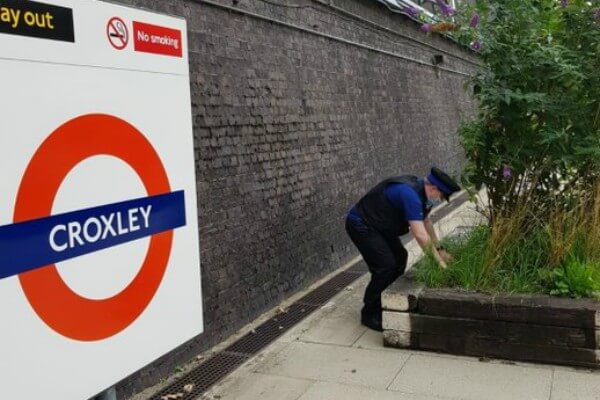Hertfordshire knife amnesty results

Hundreds of knives have been surrendered in Hertfordshire during the latest Operation Sceptre week of action against knife crime, which concluded on Sunday 19 July.
A knife amnesty began on Monday 13 July and was part of the week of action to reduce the number of illegal knives in circulation. Due to an increase in knife-related incidents across the country over recent years, regular knife amnesties are being carried out, which provide a great opportunity to raise awareness and give advice about the risks of carrying a knife in public.
During the amnesty 720 knives were surrendered across the county which included swords, hunting knives, scalpels and a variety of kitchen knives and cleavers.
Other activities carried out during the campaign included engagement events with young people in schools and public areas and visits to retailers to ensure they are adhering to laws regarding knife sales to those under 18. Knife detection operations, including covert and high visibility patrols and knife sweeps, were also conducted at locations across the county.
Police and Crime Commissioner for Hertfordshire, David Lloyd, said: ‘Every blade that has been handed in means there is one less out on the streets with the potential to cause serious injury. Knife crime does remain very low in Hertfordshire, but it understandably spreads significant concern through the community.
‘Due to residents’ concerns knife crime has been a priority for several years. The Chief Constable and I discuss it regularly, and my office has funded several substantial projects to reduce the number of young people carrying knives.’
Inspector Nicola Dean, from Hertfordshire Constabulary’s Crime Reduction Unit who led the campaign, said: ‘There has been a great response from the public and we have managed to take many potential weapons off of our streets. We have also spent a lot of time talking to young people to find out their concerns and warn them about the dangers of carrying knives.’
‘The knife amnesties form an integral part of our serious violence strategy and by conducting them regularly, we hope that the message is getting out that carrying a knife is not a normal thing to do. The amnesties support the other work we are doing throughout the year in schools, colleges and through our other projects, working with young people. As part of this strategy we are working with our partners in education, local government and social services to educate young people about the potential consequences of carrying a knife.’
